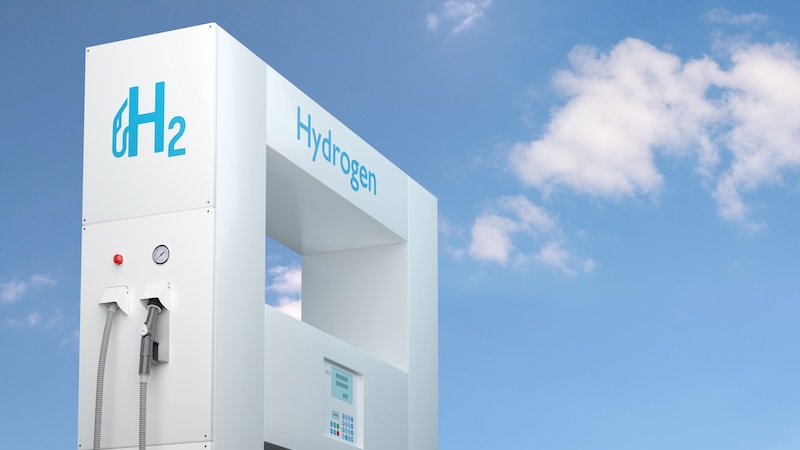
Green hydrogen currently seems to be the panacea when it comes to the energy transition. It also receives a lot of attention in the debates surrounding the mobility transition. At best, targeted application in industry is worthwhile. It is a bogus solution for road traffic. A comment.
There is no way around a hydrogen economy in Germany. After all, the federal and state governments are funding corresponding manufacturing projects with billions. The common goal of all EU countries is to produce ten million tonnes of green hydrogen themselves and ten million tonnes to import it by 2030.
The European Court of Auditors recently announcedthat the EU Commission’s goals would not only be unrealistic, but would also create new dependencies. Nevertheless: Green hydrogen can be a sensible alternative in some areas to ensure a positive climate effect. But even then he will only play a supporting role at best.
The big problem, however, is that numerous politicians and media outlets are praising green hydrogen as something it will never be: a panacea for the energy and mobility transition – and there are several reasons for this.
Green hydrogen only makes limited sense
First of all, green hydrogen is significantly more expensive than conventional gray hydrogen, whose production requires fossil fuels and emits climate-damaging CO2. The production of green hydrogen requires enormous amounts of renewable energy.
In order to be able to satisfy all the needs of industry and the mobility sector, a quarter of Germany would have to be paved with solar systems and wind turbines – which is of course completely unrealistic.
Nevertheless, if the expansion of renewable energies progresses as planned, there will be times when more sustainable energy is available than can be consumed. This surplus can be usefully used to produce green hydrogen, as energy storage is unprofitable with these amounts of energy.
But even then, the yield cannot cover all needs. Not even in combination with the import of green hydrogen, which in turn can entail certain political dependencies. In addition, it can only be generated sensibly at certain times when there is a surplus of energy.
The “champagne” of energy sources will not play a major role in road traffic
Against this background, it should actually be clear: green hydrogen cannot be cheap at all. Nevertheless, many hope that things will turn out differently. However, this is simply an unrealistic idea that belongs in the realm of dreams. So strong to play a big role as a fuel in cars, the price will never go down. For this reason alone, a corresponding infrastructure for road traffic would make no sense.
In addition, supply and demand on the global market will primarily determine the price. Specifically, this means that if many companies and consumers rush into green hydrogen, the fuel will become more expensive rather than cheaper. Like e-fuels, green hydrogen in road transport would not just be for the rich.
Rather, the “champagne” of energy sources should be used where there are no alternatives – and where it is really worthwhile. For example, in the steel and chemical industries and, if necessary, in aviation and shipping. Anything else would be inefficient and just an illusory solution.
A notice: This article is a commentary. This is a journalistic form of presentation, which explicitly reflects the opinion of the author and not the entire magazine. The comment does not claim to be objective, but is intended to stimulate the formation of opinions and is protected as an opinion piece by Article 5 of the Basic Law.
Also interesting:
- Is it all just fraud? The alleged eco-diesel HVO100 is just a false solution
- In 150 cities: Environmental aid requests higher parking fees for SUVs
- Survey on speed limits and the end of combustion engines: That’s what the Germans really think
- By law: Tenants have the right to a balcony power plant – that is now changing
The post Sham solution: Green hydrogen will not play a role in road traffic by Fabian Peters first appeared on BASIC thinking. Follow us too Facebook, Twitter and Instagram.
As a Tech Industry expert, I have to say that I disagree with the statement that green hydrogen will not play a role in road traffic. Green hydrogen has the potential to be a valuable solution for reducing emissions in the transportation sector, particularly for heavy-duty vehicles like trucks and buses.
While electric vehicles are gaining traction in the passenger car market, they may not be as suitable for heavy-duty vehicles that require long range and fast refueling times. Green hydrogen can address these challenges by providing a clean and sustainable alternative to fossil fuels.
Additionally, the infrastructure for green hydrogen production and distribution is already being developed in many countries, making it a viable option for decarbonizing road traffic. As the technology continues to improve and costs decrease, I believe green hydrogen will play an important role in the transition to a low-carbon transportation system.
Credits